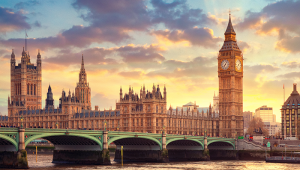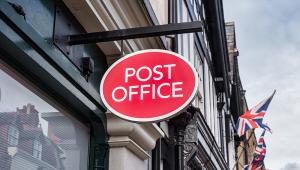In a follow up to a report published in August 2014, the Public Accounts Committee said that it was “disappointed by the lack of urgency shown in dealing with this important topic” in the 20 months since.
The government’s response has focused too much on policy and processes for when malpractice or poor practice in the workplace is reported, rather than on the much-needed cultural change required.
In 2014, the previous committee called for better protection for whistleblowers wherever the taxpayer’s pound is spent after finding that government employees are less likely to come forward.
However, Hillier said that the government was still not leading by example, which should “concern us all”.
She added: “Whistleblowers are on the frontline of defence against wrongdoing and bad practice. They have a vital role to play in the day-to-day accountability of public spending and public service.
“This should be recognised by and enshrined in the culture of every government department. Where it isn’t, senior officials in those departments should be held properly to account.”
The committee wanted universal measures put in place to encourage whistleblowers to come forward, secure in the knowledge they will be supported and treated fairly throughout the process, she added.
“There is little doubt that in the past potential whistleblowers will have been deterred by the shoddy treatment experienced by others. It is not beyond the scope of government to change that, in its own workplaces and beyond.”
To date, departmental attempts at changing whistleblowing policy and processes for the better had not been successful in modifying a bullying culture or combating unacceptable behaviour, according to the committee.
This meant opportunities to secure improvements through shared learning were hampered and opportunities to share and apply good practice lost.
The Cabinet Office was “unable to provide any evidence about which departments were performing well, and which were lagging behind”, the Making a whistleblowing policy work: progress update report stated.
It therefore called on the department to update the committee by June on progress regarding whistleblowing policies.
The Cabinet Office should also require the wider public sector as well as private and third sector providers to have effective whistleblowing arrangements in place and to report on concerns raised to identify any systemic issues.
Responding to the report, a Cabinet Office spokesman said the government took this issue very seriously. “We have worked hard to create a culture where employees are confident to blow the whistle,” he stated.
"In January, we collected data for the first time from across departments on whistleblowing cases and will continue do this on a regular basis. This information will be important as we take action to address this issue. As agreed with the committee, we will respond to them by the end of the month to show the progress that we have made.”
However, Rachael Tiffen, head of the CIPFA Counter Fraud Centre, said the PAC’s conclusions were worrying.
“Whistleblowing policy is essential for tackling fraud and corruption. Since, fraudsters are helping themselves to a staggering £21bn from the public purse each year, with barely a fraction of a per cent being caught, the government must take these recommendations seriously.
“These issues are already being challenged in local government. CIPFA is working with councils, government and the Local Government Association to develop a comprehensive approach including robust and fair whistleblowing policies.”





















